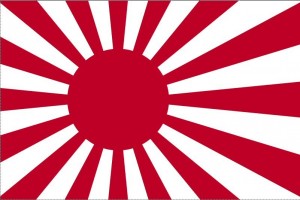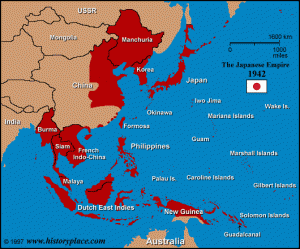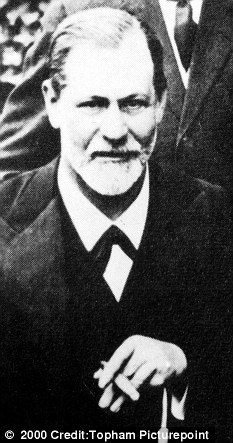Source: The Journal of Historical Review, vol. 12, no. 1, pp. 31-85.
Published here for the first time in English is the postwar prison “diary” of Japanese General and Premier Hideki Tojo.
After an outstanding army career and service as War Minister, Tojo served as Prime Minister from October 1941 to July 1944 – perhaps the most critical period in his country’s history. A few weeks after Japan’s surrender in August 1945, Tojo was arrested by American occupation forces and then put on trial for alleged war crimes. By all accounts, he conducted himself with dignity and composure during the proceedings. After being sentenced to death, he was executed in December 1948.
 Written while in prison, this “diary” consists of several essays, a reconstructed daily log of the critical period of the 1941 Pearl Harbor attack, and answers to anticipated prosecution questions.
Written while in prison, this “diary” consists of several essays, a reconstructed daily log of the critical period of the 1941 Pearl Harbor attack, and answers to anticipated prosecution questions.
Composed in part as an aid in trial proceedings, and in partas an explanation for posterity, this memoir/justification by a central figure of twentieth century history is a valuable historical document. Unknown to the world for more than forty years, these papers were first published in 1991 by historian Sanae Sato in the August and September issues of the Japanese monthly magazine Hoseki.
This translation was jointly prepared by General Hideo Miki, retired professor of Japan’s National Defense Academy, and Henry Symington, an American specialist of Japanese economic and social affairs. This material has been very slightly edited, and clarifying information has been added in brackets.
I. Events Leading to the First Greater East Asian Outbreak
Immediately before the beginning of the Great East Asian war [which commenced on December 7, 1941], Japan was still engaged in the unfortunate Sino-Japanese War, which had already gone on for more than four years. Throughout that period, Japan had made honest efforts to keep the destruction of war from spreading and, based on the belief that all nations of the world should find their places, had followed a policy designed to restore an expeditious peace between Japan and China. Japan was ensuring the stability of East Asia while contributing to world peace. Nevertheless, China was unfortunately unable to understand Japan’s real position, and it is greatly to be regretted that the Sino-Japanese War became one of long duration.
 Clearly, this Sino-Japanese War of more than four years was a considerable burden on Japan’s national power and an obstacle to the maintenance of peace in the Pacific. From the point of the view of the nation’s power, it was obvious that while we were fighting the Sino-Japanese war, every effort was to be made to avoid adding to our enemies and opening additional fronts. Naturally, this was the view of those who then held positions of responsibility.
Clearly, this Sino-Japanese War of more than four years was a considerable burden on Japan’s national power and an obstacle to the maintenance of peace in the Pacific. From the point of the view of the nation’s power, it was obvious that while we were fighting the Sino-Japanese war, every effort was to be made to avoid adding to our enemies and opening additional fronts. Naturally, this was the view of those who then held positions of responsibility.
In the past, the theory had been: Advance towards the north while defending the south, or advance to the south while defending the north. However, as the Sino-Japanese War dragged on, the only objectives that bore consideration were: 1) a swift peace between Japan and China; 2) the maintenance of international peace; and 3) the restoration of national power.
It was for this reason that Japan: 1) attempted to establish peace with China through negotiations, sometimes through American mediation; 2) strengthened the Russo-Japanese Neutrality Treaty [April 1941] in the hope of avoiding war with the Soviet Union; and 3) tried as much as possible to use diplomatic means to respond to signs that relations with the United States were worsening, even though in so doing it was necessary for Japan to endure things that were unendurable.
Despite Japan’s desires and efforts, unfortunate differences in the ways that Japan, England, the United States, and China understood circumstances, together with misunderstandings of attitudes, made it impossible for the parties to agree. Up until the very end, these were important reasons for the outbreak of war, and from Japan’s point of view, this is a matter of great regret.
Thus, England and the United States supported the Chungking [Chinese] government [of Chiang Kai-Shek] in every way, obstructed the peace between Japan and China that Japan desired, and thwarted Japan’s efforts towards East Asian stability. During this period, in July 1939, the United States suddenly gave notice of the abrogation of the treaty of commerce [signed in 1911, its termination restricted the importation of essential raw materials] thereby threatening the existence of the Japanese people. At present, looking back coolly upon the past, I think that both nations have much to reflect upon.
1. Both China and Japan should have emptied their hearts of ill-will, calmly explained their true positions to each other, and reflecting deeply on the fact that they were the corner stones of stability in East Asia, should have more bravely followed the path of direct peace negotiations.
2. Likewise, in dealing with the China problem, the British and American side, which had particularly strong interests in China, should have based its judgments about the origins of the problem on direct observation of the actual circumstances at the time. Moreover, both sides should have considered the point of view and survival of the one billion people of East Asia, who were awakening to world development. Rather than be trapped in the narrow-minded maintenance of old power structures, it was necessary that both sides deliberate together, work harmoniously, and take a broader view of mutual prosperity, cooperation, and the establishment of stability in East Asia.
Note 1. As for the China Incident [the alleged attack by Chinese troops at the Marco Polo bridge near Peking on July 7, 1941, which triggered the Sino-Japanese War] and the problem of whether or not it was possible for Japanese forces to withdraw from China, before concluding for formalist reasons that this was a simple invasion, it is necessary to consider the deeper origins: the exclusion and insult of Japan throughout the entire Chinese region, boycotts of Japanese goods, the infringement of rights and revenues, and violence against resident Japanese. The [Western] powers have had similar experiences with China, such as the exclusion of foreigners in 1899 and the anti-Christian Boxer Rebellion [1899 -1901].
Note 2. All peoples are created by God and have the same rights and freedoms to survive on earth together according to law. It goes without saying that when survival is threatened, struggles erupt between peoples, and unfortunate wars between nations result. Furthermore, in the period when they awoke to world development, the one billion people of East Asia had greater demands to make with respect to their survival because of economic development and unusual increases in population. I believe that it is in East Asia, where these demands must be met.
Of course, the peoples of East Asia have a natural obligation to be grateful for the sacrifice and efforts of the European powers and America in leading the peoples of East Asia to their present circumstances, and they should respect the existing rights and privileges of those powers. The stability of East Asia can be hoped for only if both sides understand and appreciate the other’s position and have the magnanimity to adjust to circumstances. Moreover, this is part of the obligation towards East Asia that the great powers have as part of their fundamental responsibility for ensuring world peace.
3. With respect to the above and considering the case of Japan, recourse to arms has a profound relation to national policy and bears the following considerations: before resorting to military action, it should be strongly deterred at the appropriate time by diplomatic means if necessary. Unnecessary escalation is to be prevented by diplomatic power, and all efforts should be made to keep operations from interfering with policy.
(Explanation 1) On this matter, in the Japanese system [of the 1930s and 1940s] there are many aspects that relate to the independence of the high command. Actions of the high command are not, as in other nations, included in the national government, but are outside and independent of the nation’s constitutional government, and it is natural that they should brook no interference. Consequently, these matters are different from those on which the Interior Minister assists the Emperor. In actions relating to the high command, the Chiefs of Staff of the Imperial General Headquarters, that is to say, the Army Chief of Staff and the Chief of Naval Operations, have a responsibility that is separate from that of the cabinet, and they take independent responsibility for the assistance they provide the Emperor. According to our current system, in matters pertaining to both sides, this is the role of the Army and Navy ministers.
Consequently, once operations have begun, they are largely conducted according to the independent will of the high command. Frequently, the national government finds that it has no choice but to make the best of things or simply submit in silence. In time of war, especially, these conditions become even more extreme because the Imperial General Headquarters has primary control over conduct of the war, and its word carries much weight.
Even military ministers have no more than a certain amount of control. It is customary that they have the right and the power to participate, from a political and military point of view, in the planning of actual operations.
It is obvious that in purely military matters, it is absolutely necessary that operations be energetically executed, and that military objectives be achieved quickly without any political restrictions. However, unanticipated ill results may ensue when there are delicate policy considerations or when there is an important diplomatic connection. This is to be expected in contemporary warfare because it is often the case that the success or failure of operations is instantly reflected in world conditions.
It is for this reason that relations between the national government and the [military] high command must be harmonized from time to time. This is something to be much reflected upon in the future. In fact, past cabinets have set up regular meetings with the high command and tried to harmonize relations, but such bodies had no formal responsibilities (under the current constitution, each minister counsels and assists the Emperor individually, so organizations of this kind cannot be set up). Furthermore, they were not actually involved in the conduct of operations so their effect was not great. In later years, they were formalized as Meetings of Chief Executives [Liaison Conference], but that probably did not make much difference. This is suggested by the fact that although at that time the Prime Minister attended meetings at the Imperial General Headquarters, it is my recollection that he was not to be involved in the conduct of operations.
(Explanation 2) From around the time of the February 26 incident of 1936 [when an insurgent group of army officers attempted a coup in Tokyo], there appeared in the military trends towards subordinate policy-making (subordinates would ignore the wishes of their superiors) and staff-level control of government (staff officers would seize control, ignoring the ministers and director-generals). These trends were particularly apparent in the army. In that manner, there was a tendency for decisions, entirely contrary to national policy or to top military policy, to be made according to the limited understanding of lower-ranking men, and this, without the knowledge of their superiors. This, too, hindered the smooth operation of national government.
Half of the reason for this was shortcomings in the instruction on staff officer attitude at the War College and deterioration within the military of the psychological and formal feeling of subordination and assistance to superiors. There remains, however, the fact that there had been a loss of ardor and enthusiasm in the spirit of command at the higher levels. There was an absence of strong leadership and initiative, and a tendency to think that given the choice, the best course of action was to do nothing.
After I became Army Minister [in July 1940], His Majesty [the Emperor] told me what he had said to the Army Minister at that time, General Terauchi, immediately after the February 26 incident, namely, that His Majesty was very worried about these matters. After becoming minister, I tried to make improvements. As it happened, at the time troops were dispatched to French Indochina, misbehavior of that kind was detected and those involved – from top to bottom – were firmly disciplined. Later, I worked from time to time to counter those tendencies, but left office before improvements were complete.
As is the case with civilian bureaucrats, the reasons for the abuses committed by lower-ranking bureaucrats are different, but they are the source of the sclerotic manner in which Japan executes policy.
(Explanation 3) For a long time, we have heard about military factions. Also, we have heard for a long time that the armed forces were high-handed, and recently this idea has been particularly widespread. There were many things in the past about which the military should reappraise its own behavior.
Nevertheless, there is something that must be said about military factions. [A reference to the so-called “Control” and “Imperial Way” factions within the Japanese military.]
Today, it is an error to think that there are factions in the military. A soldier holds his rank for life, but his authority begins only when his position is conferred upon him by the Emperor. With this authority comes the right to influence the high command or, according to his position, the execution of government policy. However, as soon as a man leaves the service, even if he had been a general, his authority ceases and he no longer has the power even to adjust the rank of a second lieutenant. If such power were to continue, that would mean the creation within the military of an individual faction, and it would be impermissible. This has always been the case in Japan, and explains why there are no factions in the military.
As for whether or not the military has been high-handed, it is not as though there are no reasons for thinking this is so. This is something that requires self-examination.
However, I think it possible that much of the public criticism about high-handedness arose from the power of execution born of the command/obedience relationship and strength that come from the military’s organization, especially from the importance placed on timing that arises from the requirements of war. I believe that this is what produced the consequences of Explanations 1 and 2 noted above, that is to say, those things that must be acknowledged as highhandedness and reflected upon as such.
4. Later, as operations against China followed natural operational exigencies, the front was gradually expanded towards the south. In order to put a quick end to the Sino-Japanese War, it was necessary first to strike a mortal blow against the Chungking forces [of Chinese leader Chiang Kai-shek]. For this reason, it was necessary to strengthen the blockade of the Southeast China coast and to establish a large, new operations route deep into the South.
5. At about that time, in order for Japan to sustain its own people, and because of the necessity of maintaining internal production, and in order to prosecute the Sino-Japanese War, we were faced with the necessity of obtaining such things as rice and oil from the southern islands, including French and Dutch Indochina. Particularly at the time when the United States broke off commercial relations with Japan, and the routes that depended on the United States were cut, the survival of Japan was closely connected to whether or not peaceful commerce would be possible with these southern areas. Consequently, Japan despatched ambassadors and conducted negotiations with these areas, but since they already had hostile feelings, nothing could be smoothly established.
Furthermore, it had been clearly established by intelligence that French Indochina was an important, hidden supply route for [the Chinese forces headquartered in] Chungking. Consequently, it was necessary to cut this off, as part of the strengthening of our China operations. At the time, given the conditions in Europe, France was a friendly nation with a duty to cooperate with Japan. Therefore, the peaceful occupation of Indochina (September 1940) was carried out with the understanding of France. Thus, given the uncertainties in the southern Pacific, and the necessity of putting a quick end to the Sino-Japanese War and establishing the cooperative relations necessary for the survival of both nations, a portion of our military was gradually transferred to southern French Indochina.
However, the British-American side called this a threat to their own territories, and in July 1941, together with Holland, ordered the freezing of assets and, in effect, commenced an economic blockade.
This was a grave threat to the existence of Japan. In addition to this, the British-American side concentrated troops in Hawaii, the Philippines, Singapore, and Malaya, and reinforced their defenses. In this way, economic pressure was increased just as the circle around Japan was tightened, and conditions arose that severely threatened the existence of Japan.
(Note) The reasons for the occupation of French Indochina are as explained above, and in outline they were as follows:
(1) To cut the enemy’s supply lines, to make it easier to launch aerial attacks, and to finalize the defenses of French Indochina. This was done on the basis of a mutual defense pact.
(2) Because commercial relations were smooth, trade was facilitated and relations of mutual benefit were established.
The reasons for the occupation of southern French Indochina were essentially the same. However, conditions in the Pacific had worsened, and the need to end the Sino-Japanese War was felt more keenly than ever, and the conditions outlined above were more severe.
One of the reasons that Japan prepared for a passive national defense was the worsening conditions in the Pacific, but this was not the main reason.
6. Since conditions were deteriorating,it was necessary to resolve them quickly. It was proposed that the Prime Minister of the time [Konoe Fumimaro] meet directly with the President [of the United States] so that both could express their feelings and debate the general problems of the Pacific that had arisen between the two nations, so as to resolve these dangerous circumstances by political means. However, even though the United States agreed to this proposal in theory, they claimed that since it was an important matter, they preferred that such a meeting take place after differences of opinion had been resolved. Ultimately there was no such meeting, which was very unfortunate. The Japanese government had thought that a meeting would take place, and actually selected an entourage and prepared a ship.
7. The hope for a peaceful solution by means of a summit meeting thus disappeared, but Japan, wishing to reach a solution through diplomatic means, made several later proposals in response to the American position. However, the United States held firm to its initial position and would concede nothing.
8. Around November 20th [1941], conditions were on the verge of deteriorating even further. In order to avoid a rupture of diplomatic relations, the government resisted strong pressures from the high command and made a proposal containing a number of concessions. As I recall, the proposals were the following:
(1) Neither nation will send military forces to the southern Pacific or to any part of South East Asia other than French Indochina. (2) Should peace be established between Japan and China or in the Pacific region, all Japanese troops in French Indochina will be withdrawn. (3) If this agreement is concluded, all Japanese troops in southern French Indochina will be rotated to the north. (4) Commercial relations will be restored to their former state. Assurances will be given so that necessary materials can be obtained.
9. The United States did not agree to these proposals. Furthermore, it took back what it had previously said about acting as an intermediary in Sino-Japanese peace-making and refused to perform this service.
In any case, if one looks at the circumstances immediately before the outbreak of the Great East Asian War from a Japanese point of view, one notes that the China Incident had continued for more than four years without solution. Efforts had been made to resolve the situation by negotiations between Japan and the United States, but this had failed. Furthermore, in accordance with the requirements of operations, the theater of action of the Sino-Japanese War had moved ever more deeply towards the Southwest and international relations continued to deteriorate.
During this period, Japan’s peaceful commercial relations were successively obstructed, primarily by the American rupture of commercial relations, and this was a grave threat to the survival of Japan. In particular, the economic blockade by the various powers, led by the United States, inflicted a mortal blow to the survival of Japan.
In connection with these multiple economic pressures, the ABCD [American-British-Chinese-Dutch] encirclement of Japan only drew tighter, and defenses in Hawaii, the Philippines, Singapore and Malaya were strengthened. The main American naval forces were shifted to the Pacific region and an American admiral made a strong declaration to the effect that if war were to break out between Japan and the United States, the Japanese navy could be sunk in a matter of weeks. Further, the British Prime Minister [Churchill] strongly declared his nation’s intention to join the fight on the side of the United States within 24 hours should war break out between Japan and the United States. Japan therefore faced considerable military threats as well.
Japan attempted to circumvent these dangerous circumstances by diplomatic negotiation, and though Japan heaped concession upon concession, in the hope of finding a solution through mutual compromise, there was no progress because the United States would not retreat from its original position. Finally, in the end, the United States repeated demands that, under the circumstances, Japan could not accept: complete withdrawal of troops from China, repudiation of the Nanking government [formed under Japanese auspices and headed by Wang Ching-Wei, previously an important Chinese Nationalist leader], withdrawal from the Tripartite Pact [signed by Germany, Italy and Japan on September 27, 1940]. At this point, Japan lost all hope of reaching a resolution through diplomatic negotiation.
Since events had progressed as they had, it became clear that to continue in this manner was to lead the nation to disaster. With options thus foreclosed, in order to protect and defend the nation and clear the obstacles that stood in its path, a decisive appeal to arms was made.
(Explanation) War was decided upon at the Imperial Conference on December 1, 1941, and the shift to real operations was made at this point. However, even during the preparations for action, we laid our plans in such a manner that should there be progress through diplomatic negotiation, we would be well prepared to cancel operations at the latest moment that communication technology would have permitted.
II. Concerning the Three Final Problems in Japanese-American Negotiations
1. The demand that Japanese troops be withdrawn completely from China.
The causes of the China Incident were the exclusion and insult of Japan throughout China, the exclusion of Japanese goods, the persecution of Japanese residents in China, and the illegal violation of Japanese rights. As Japan had declared on such occasions, it was thought that the stability of East Asia depended on the close, mutual assistance and cooperation between China and Japan. That Japanese troops were stationed in China at the time was the result of unfortunate incidents and not something that Japan had originally desired. Consequently, there would have been no objection to the total withdrawal of troops should the causes be eliminated, and even with respect to the New China-Japan Treaty [March 30, 1940], discussions were pursued in this fashion. However, this required the elimination of those causes and would have been possible only on the basis of a guarantee to that effect.
To withdraw troops without having obtained such guarantees would be only to repeat what had happened before (the troop withdrawal of 1932 after the Shanghai Incident), and would have caused unhappiness not only to Japan and China but would not have permitted the anticipation of stability in East Asia. On the British-American side the causes were seen entirely to be a Japanese policy of invasion, and little thought was given to actual circumstances. The Japanese policy, as was made clear at the time, was a non-expansionist policy, and it was not carried out as a matter of national intent.
Looking back on that period from the present, there is some cause for self-examination. Even though the Sino-Japanese war was called a non-expansionist policy, it is clear that over a long period events expanded to a wide area. However, this was not the will of the nation but a result of the exigencies of operations, combined with the inability of a weak government to prevent it. The reasons for the latter lie in Japan’s internal systems and traditions.
Whether the fundamental cause was China’s illegal activities or Japan’s invasion may be something of a chicken-and-egg question. The reason was the failure of both Japan and China to understand each other and the inability of America and the European powers to sympathize, without prejudice, with the peoples of East Asia.
2. Repudiation of the Nanking government.
The establishment of a national [Chinese] government[based in Nanking] with Wang Ching-wei as Premier was primarily a domestic question for the Republic of China. Of course, it must be conceded that it was born of the stimulus of Japanese operations, but this is only a secondary reason and not the real reason. As opposed to the Chungking government, which continued to exclude, insult and make war on Japan, the Wang Ching-wei government made overall peace its objective, and attempted to establish permanent peace in East Asia by means of Sino-Japanese mutual assistance. Therefore it was natural that Japan recognize this government and feel friendly towards it.
(Note) When a new government is formed in any country, it is normal to recognize it if it is in harmony with one’s own government, and to show it good intentions. The [Western] powers have done the same in the course of the current war. However, to repudiate a government less than one year after having recognized it would cause the world to doubt a nation’s faith, and therefore it could not be done.
The Nanking government essentially wished for overall peace in China. Consequently, it was thought that when overall peace had been achieved, questions about it would be resolved as a domestic matter. For that, it was necessary that peace be concluded between Japan and China through termination of the Sino-Japanese War. However, even with Japanese assistance, prospects were uncertain, so it was impossible to resolve questions about the Nanking government.
3. The problem of repudiating the Tripartite Pact
The Americans demanded that, “the governments of both parties agree not to interpret any agreements concluded with third countries in a way that contradicts the purpose of this agreement, which is the maintenance of peace in the Pacific region.” This clearly required that Japan breach the Tripartite Pact and that, consequently, was the same as requiring that Japan renounce the alliance.
Essentially, the reason for concludingthe Tripartite Pact was the fact that as a result of the Washington Conference [on naval armaments, in 1922], the Anglo-Japanese Alliance had been annulled, and world circumstances were such that Japan had withdrawn from the League of Nations [announced in 1933, effective in 1935] because the League would not recognize Japan’s claims. In order to end its isolation, alliance was sought with Germany and Italy, which found themselves in much the same circumstances. Furthermore, it was expected that German power could be used to help in a solution to the China problem. However, if Japan were to accede to an American demand of this kind, it would indicate to the world the untrustworthiness of Japan. In the past, Japan fulfilled the terms of the Anglo-Japanese Alliance, and at the request of Britain, advanced all the way into the Mediterranean. As is clear from the fact that today, the souls of those fallen [Japanese] soldiers are still on the island of Malta, I believe the world will recognize that Japan is faithful to alliances. [A Japanese destroyer was sunk during the First World War while on escort duty in the Mediterranean, in fulfillment of Japan’s obligations to England under the Anglo-Japanese Alliance.] Therefore, Japan could hardly take, for purposes of momentary gain, measures that would cause it permanently to lose the faith of the world.
III. Circumstances Around the Time Of the Resignation of the Third Konoe Cabinet
1. My recollection is that it was at a time when, in accordance with the Imperial Policy Execution Outline adopted at the Imperial Conference of September 6, 1941, the point had been reached when troops were moved into Southern French Indochina, and the situation had become tense. It was something that had been determined as necessary in order to carry out national policy and, as I recall, we were to be prepared both for war and for peace.
2. The US-Japan summit that Prime Minister Konoe had hoped for was rejected by the American side and did not take place. [The summit proposal was made on August 8.]
There was a difference of opinion between Foreign Minister Toyoda and myself at a cabinet meeting around the 14th or 15th of October. I recall that the points of disagreement were as follows:
(1) My opinion was that, as could be seen from a review of the US-Japan negotiations, Japan had striven for a solution by means of repeated concessions but the United States had stuck firmly to its initial positions and would make no concessions.
(2) US approval could not be obtained for a diplomatic solution by means of the US-Japan summit that the Prime Minister had hoped for. Furthermore, military and economic pressures were being stepped up day by day.
Therefore, if one were to consider that there was virtually no possibility of success through the US-Japan negotiations, the military and economic pressures would only force Japan into further crisis if time were allowed to pass in vain. It was my position that we must recognize that it was impossible to meet Japan’s objectives as decided at the Imperial Conference, and that the time had come to make war on the United States (at the Imperial Conference [of September 6] the start of operations had been set for mid-October). At the time, the high command of the army advocated this (starting operations in mid-October).
3. As opposed to this, the Prime Minister and Foreign Minister took the position that the obstacle to the negotiations was the withdrawal of Japanese troops from China, and that if concessions were made on this point, an agreement might not be impossible. As for troop withdrawal, that was a matter of great interest to the army, which was then conducting operations. There were no objections to withdrawal as such. However, the reasons for the China Incident [the alleged attack by Chinese troops at the Marco Polo Bridge near Peking on July 7, 1937] had been the insults to Japan, and the anti-Japanese and illegal acts that had occurred in various parts of China. Therefore, if there was not to be a guarantee that those causes would be eliminated, the result would simply be a repetition of the same incidents. Furthermore, a withdrawal that did not achieve its purpose would demoralize the Japanese army to no avail, and it was feared that it would confirm the American claim that the China Incident was provoked by a Japanese invasion. This was something to which the army could not agree.
At the time, both the high command and the army in the field were firm on this from top to bottom; a withdrawal without guarantees was unthinkable.
Thus, because of this difference of opinion, the cabinet resigned en masse. I might add that I had nothing whatsoever to do with Prime Minister Konoe’s memorandum to the throne on the resignation of his cabinet.
4. On October 18, 1941, I suddenly received a mandate from His Majesty to form a new cabinet. This was completely unexpected, and when I was summoned to the Imperial Palace I thought I would be questioned on the army’s point of view. I took with me documents related only to this.
(1) With respect to the formation of a cabinet, I received an Imperial mandate to return to blank paper [that is, with a free hand to direct national policy] and to make no missteps in policy. Therefore,considering that the national leadership responsibilities of the Prime Minister and Army Minister are different from each other, I was unswayed by the usual claims of the army. Though there were demands that negotiations be cut off and war begun, I was unmoved by them, arguing that so long as there was the slightest hope of a negotiated breakthrough, efforts should be continued.
Since there was no desire on the part of the high command for a troop withdrawal from China, it was determined to seek a breakthrough in negotiations on the importanat matter that had caused a worsening of conditions, namely, the movement of Japanese troops into French Indochina. Even about this, there was considerable unhappiness in the high command.
IV. Various Problems To Which The Pearl Harbor Attack is Central
It is natural that I should bear entire responsibility for the war in general, and, needless to say, I am prepared to do so. Consequently, now that the war has been lost, it is presumably necessary that I be judged so that the circumstances of the time can be clarified and the future peace of the world be assured. Therefore, with respect to my trial, it is my intention to speak frankly, according to my recollection, even though when the vanquished stands before the victor, who has over him the power of life and death, he may be apt to toady and flatter. I mean to pay considerable attention to this in my actions, and say to the end that what is true is true and what is false is false. To shade one’s words in flattery to the point of untruthfulness would falsify the trial and do incalculable harm to the nation, and great care must be taken to avoid this.
As it happens, what has been called the speech of Fleet Admiral Nagano [Chief of the Naval Staff] with respect to the Pearl Harbor attack, was publicized on October 27th. Upon reading it, errors can be found in important matters, and I shall here write the true facts for the benefit of future generations.
1. At the Imperial Conference on December 1, it was decided to make war against England and the United States. How the procedures for the commencement of hostilities were to be carried out was deliberated upon at the Liaison Conference [a joint meeting of civilian and military personnel] where the agenda of the Imperial Conference was discussed. It was decided to proceed according to international treaty and confirm the propriety of those actions while at the same time avoiding a too-early disclosure of our operations. Ambassador Nomura was to deliver a note by hand to the US State Department an hour and a half ahead of time, and the text, as well as the time of domestic notification [within Japan] were to be the responsibilities of the high command and of the foreign ministry. Therefore, I have thought to this day that the notification that Japan was breaking off diplomatic relations and was shifting to the unfettered conduct of its affairs [by declaring war] should have been under the responsibility of the Foreign Minister, communicated without fail. Of course, if there was failure in this matter, I have no argument with the view that, as Prime Minister, the responsibility is mine.
The draft of the final rupture of diplomatic relations was written under the responsibility of the Foreign Minister of the time, and its contents were not reported to the Cabinet.
2. The Imperial Rescript on war, as can be seen from its first page, is directed primarily to the Japanese people. In order that this be made public as soon as possible after the commencement of war, approval from the Privy Council was obtained on the morning of the 9th.
Though this was a domestic matter, if these procedures had been followed in advance, it might have resulted in a too-early disclosure of operations.
In any case, the way the Imperial Rescript was handled was not by any means intended as a means of concealing the attack on Pearl Harbor. On this matter, according to Fleet Admiral Nagano, it was understood that the declaration of war was to be made before the start of the Pearl Harbor attack, before three in the morning, but this is a grave mistake. That is something that the government would not have known about. Three in the morning would mean getting Privy Seal approval in the middle of the night on Sunday, and the government would not have agreed to something so out of keeping with Japanese custom. Fleet Admiral Nagano has probably confused this with the final official note [to the Americans]. It is most unbecoming that the Fleet Admiral should give the world an impression that is not only mistaken but suggests that Japan deliberately delayed the declaration of war.
When reflecting upon it today, that the Pearl Harbor attack should have succeeded in achieving surprise seems a blessing from Heaven. It was clear that a great American fleet had been concentrated in Pearl Harbor, and we supposed that the state of alert would be very high. At the same time, since we were approaching with a great fleet of our own, there were grave doubts as to success. It is intolerable to think that on that occasion the government did something incorrect, and we had absolutely no intention of doing so.
V. The Manchurian Incident And International Relations
1. After the first Great European War [of 1914-1918], our country made, as the basis of its foreign policy, the support of international understanding and the development of good relations with the powers.
2. At that time, in China, internal disorders had continued ever since the establishment of the Republic of China [in 1912]. Regional war lords proliferated and the internal disorders due to the struggle between the northern and southern governments did not cease. Even after the beginning of the Showa era [1926] and the establishment of the Nationalist government in Nanking with Chiang Kai-shek as Premier, its power was not sufficient to ensure an orderly nation.
3. After the Nine Power Treaty [of 1922] was concluded [at the Washington Conference], American East Asian policy became more vigorous, and at the same time the Communist movement gained strength on the Chinese mainland. International relations, especially concerning Manchuria and Mongolia, became more complex and tense.
4. Despite this situation, the Nationalist government as well as the [Chinese] war lords were taken in by the East Asian policies of such countries as Britain and the United States, and they did not understand our own spirit of justice and friendship. Furthermore, seeing that public opinion in our country was confused, that the political situation was unstable, and that our foreign policy appeared to be unstable, they insulted our nation, took policies opposed to Japan, and continued on a national scale with their resistance to Japan, with such efforts as the boycott of Japanese products.
5. Especially in Manchuria, where our special privileges had been secured, such war lords as Chang Tso-lin, who held real power in the region, failed to understand the true significance of the Russo-Japanese War, and lost their understanding and gratitude of what our country had done on the continent on behalf of the stability of East Asia. They called for the recovery of Port Arthur and Dairen, violated our interests, and took an arrogant attitude. After Chang Tso-lin died [in 1928, in an explosion attributed to Japanese plotters] and the era of his son, Chang Hsueh-ling began, outrageous circumstances only worsened.
(1) Plans were undertaken, with American finance, to build a new railroad that would encircle our South Manchurian Railway.
(2) Farmers from the Korean peninsula were persecuted and attempts were made to expel them. Treaties were spurned, and our interests were destroyed. Further, our nation’s existence was threatened, and there were continuous plots to disturb the peace of East Asia. Our government was patient, sometimes negotiating, sometimes trying to set up agreements. In return, China showed no sincerity whatsoever, and thus arose a mountain of unsolved problems, both great and small.
6. On the night of September 18, 1931, Chinese [?] troops occupying Mukden blew up the South Manchuria Railway, and that became the Manchurian Incident.
On March 1st, 1932, [the state of] Manchukuo was established [in northern China], and this fact was proclaimed both domestically and to the world. That proclamation meant that a peaceful and happy world was to be built by means of the rule of virtue, that peoples would cooperate and contribute to the peace of the East.
On September 15, 1932, its independence was approved, and the Protocol between Japan and Manchukuo was signed.
 Identitetsdiffusion, som er et af de særlige træk ved borderlinepersonlighedsstrukturen, er udtryk for, at personen ikke kan bevare et stabilt billede af sig selv og andre. Billederne er ikke hele og integrerede, og personens oplevelser vil derfor veksle: Det ene øjeblik kan personen opleve sig dygtig, endog overlegen i en præstation – og i det næste øjeblik kan den samme person opleve, at han/hun ikkekan præstere noget af værdi. Personen kan måske godt huske den tidligere oplevelse, men det er, som om den ikke har nogen følelsesmæssig betydning. Oplevelsen af andre bliver på samme måde flad, overfladisk og endimensionel og det er som om det ikke er hele mennesker, der bliver omtalt.
Identitetsdiffusion, som er et af de særlige træk ved borderlinepersonlighedsstrukturen, er udtryk for, at personen ikke kan bevare et stabilt billede af sig selv og andre. Billederne er ikke hele og integrerede, og personens oplevelser vil derfor veksle: Det ene øjeblik kan personen opleve sig dygtig, endog overlegen i en præstation – og i det næste øjeblik kan den samme person opleve, at han/hun ikkekan præstere noget af værdi. Personen kan måske godt huske den tidligere oplevelse, men det er, som om den ikke har nogen følelsesmæssig betydning. Oplevelsen af andre bliver på samme måde flad, overfladisk og endimensionel og det er som om det ikke er hele mennesker, der bliver omtalt.






